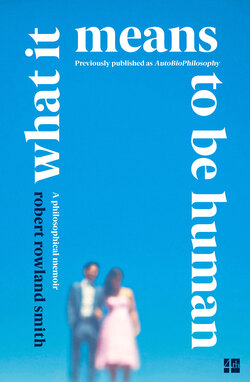Читать книгу What it Means to be Human - Robert Rowland Smith - Страница 12
The axe falls
ОглавлениеThere was a third man for Colin to worry about. This was David Cooke. As is obvious from his surname, Mr Cooke wasn’t part of the family. He was an outsider. Like the owners of many family businesses, I suppose, the proprietors of Rowland Smith & Son Ltd. were aware that family ties could be a liability as well as an asset. They saw the value in an external perspective. Besides, David Cooke came with a reputation as a marketing genius. Before long, Colin perceived his father to be favouring the interloper over him, just as he had suspected his father of transferring his favour to young Rowley. Colin might have been made a director of the company, but psychologically he found himself twice displaced.
Meanwhile, in his thirties, Colin had been diagnosed with MS. He would complain of pins and needles, and of a recurrent ache down the left side of his body, starting in his shoulder. He acquired a slight limp. Mercifully, the disease stabilised at a low level, barely impinging on his capacity to function. Until, that is, the storm clouds that had been gathering over the business finally broke. The money began running out and desperate measures had to be taken. As the big boss, my grandfather decided on cuts. Having tallied up the golden salaries paid to the directors, particularly to my father and David Cooke, he chose to delete one. He sacked his son.
That was in 1979, when Colin was forty-three. He made some half-hearted efforts to set up a marketing enterprise. But, having been given a house and a job and a salary just by virtue of belonging to the Rowland Smith clan, he couldn’t muster the initiative to make anything happen. Perhaps he had also internalised his father’s verdict on his uselessness. He never properly worked again. He sold the big house and gave himself up to his disease.
His eyes were one of the first things to go. He developed a squint and had to wear an eye patch. He had trouble forming sentences. One day he lost control of the accelerator pedal on the Citroën to which he had downgraded. He rammed the vehicle in front, causing a minor accident. With great reluctance, he agreed not to drive again. The limp that had been with him since his thirties became unignorable. The staircase at home had become an abyss into which he risked tumbling from the top. Before long, the walking stick was traded for a wheelchair. Colin would trundle this contraption around the downstairs of the gingerbread cottage he now lived in with Patricia, smashing against the door jambs until they were splintery and raw. By the late 1990s he would fall down regularly getting in and out of it, and my small-framed mother was losing the strength to haul him up again. It was then that she approached the British Home and Hospital for Incurables.
